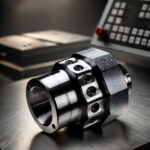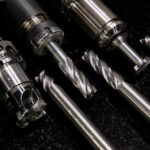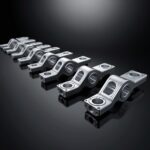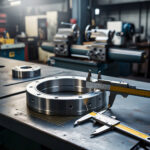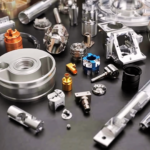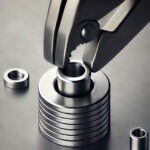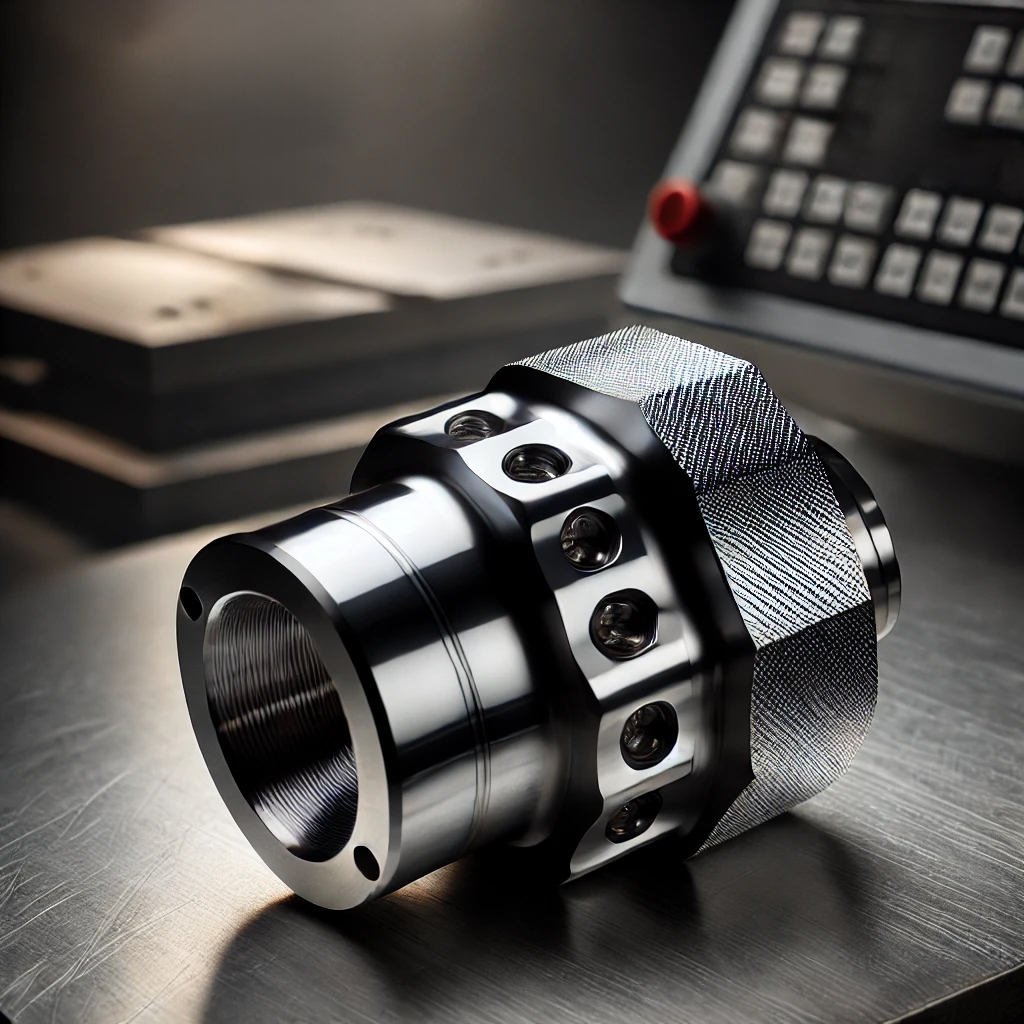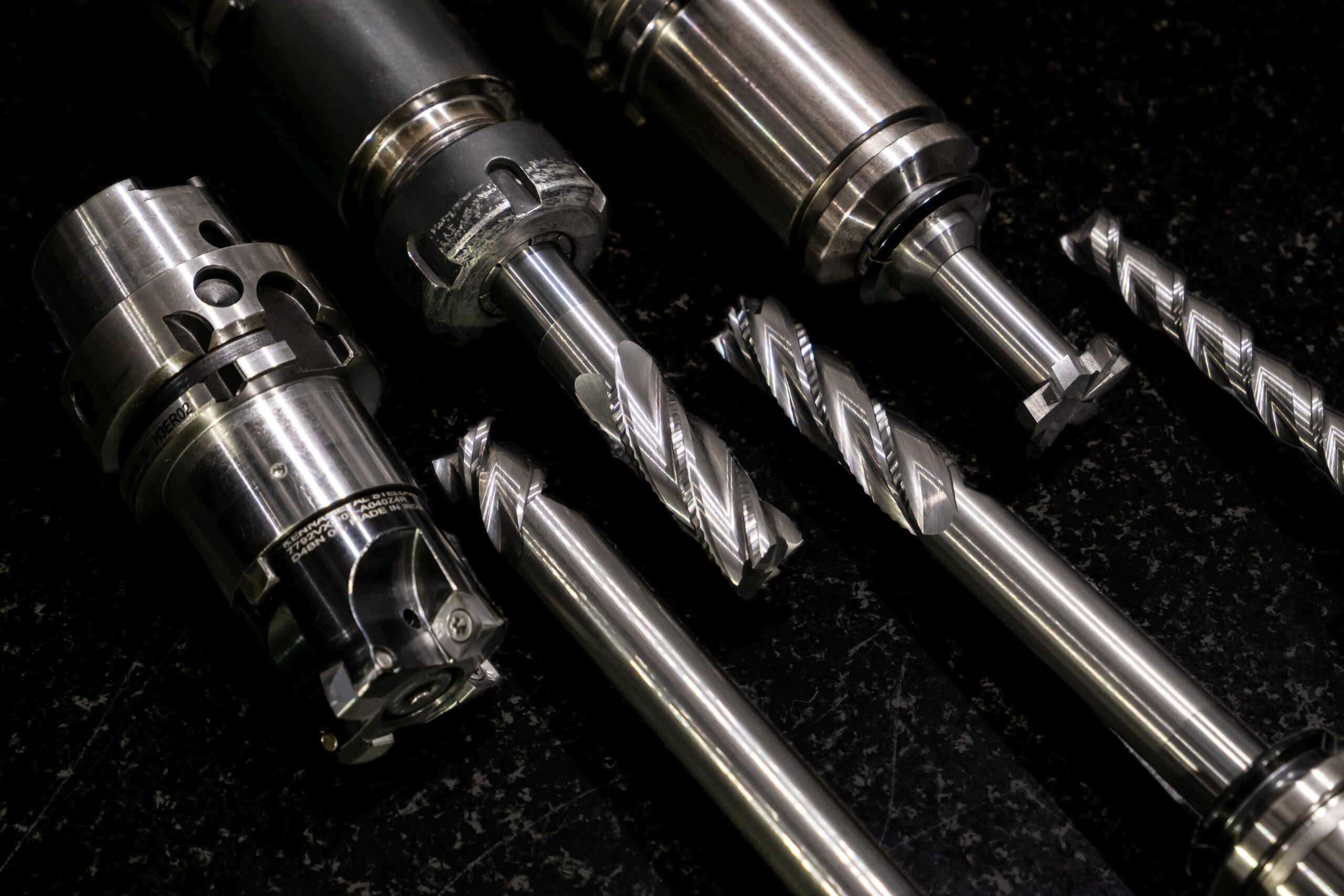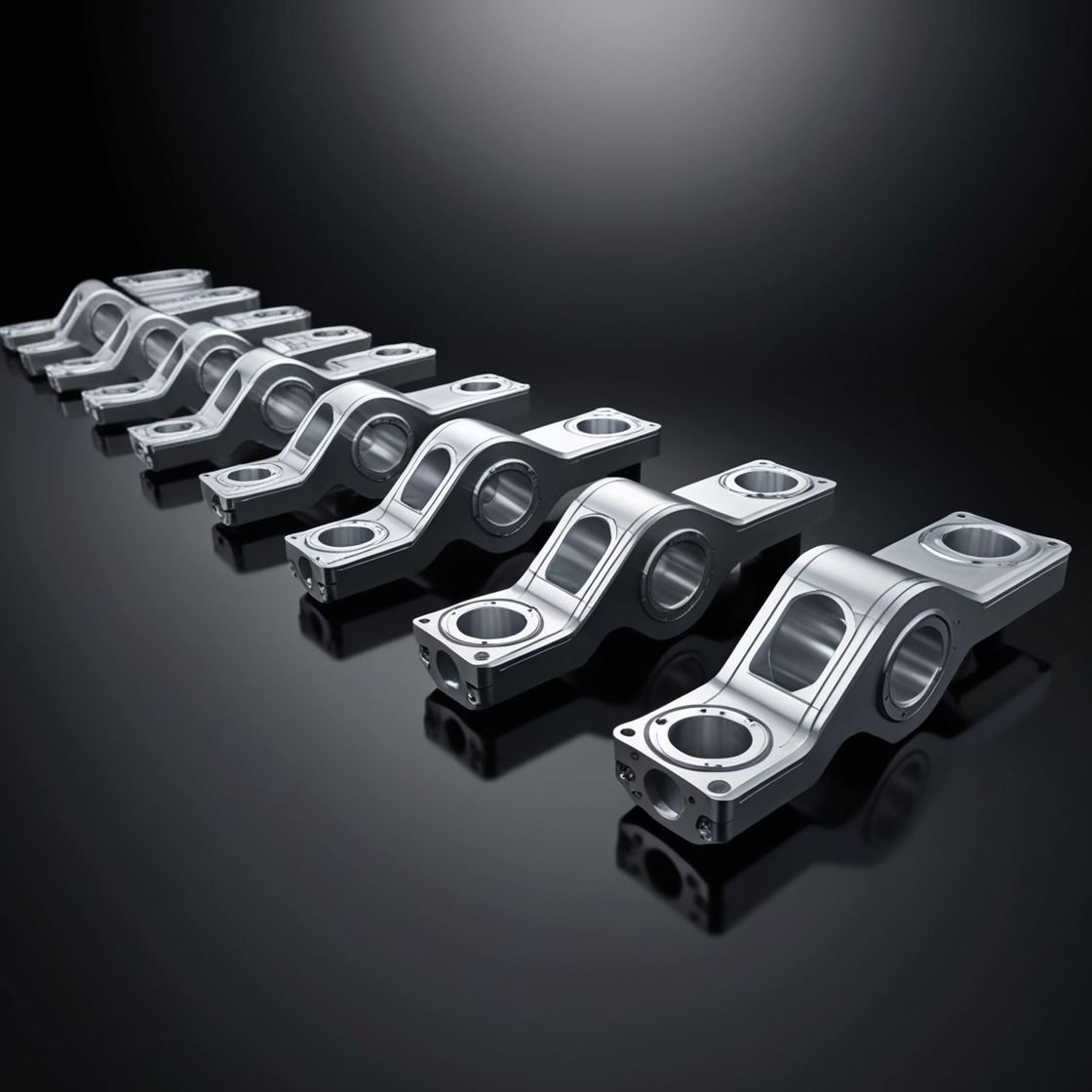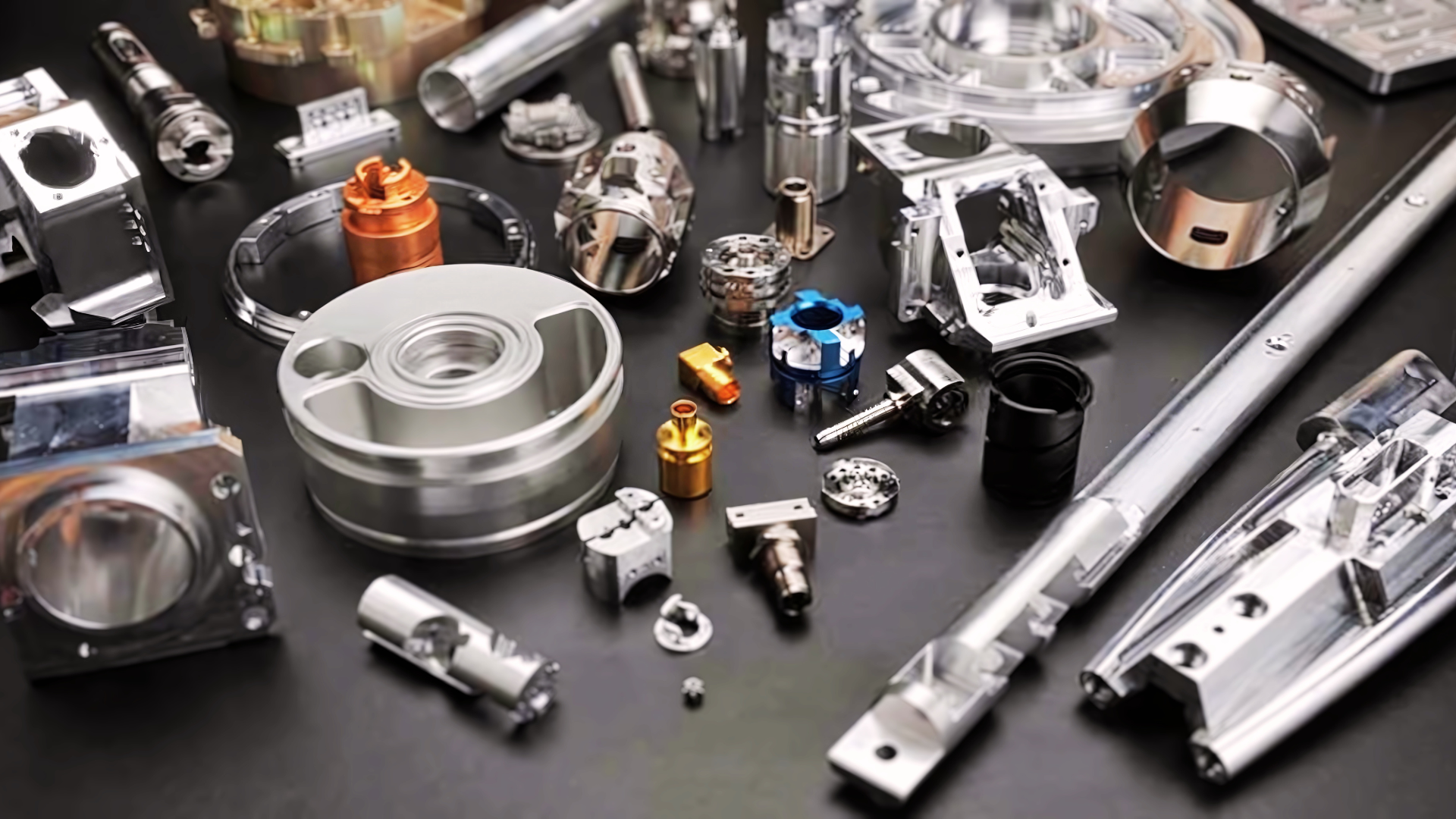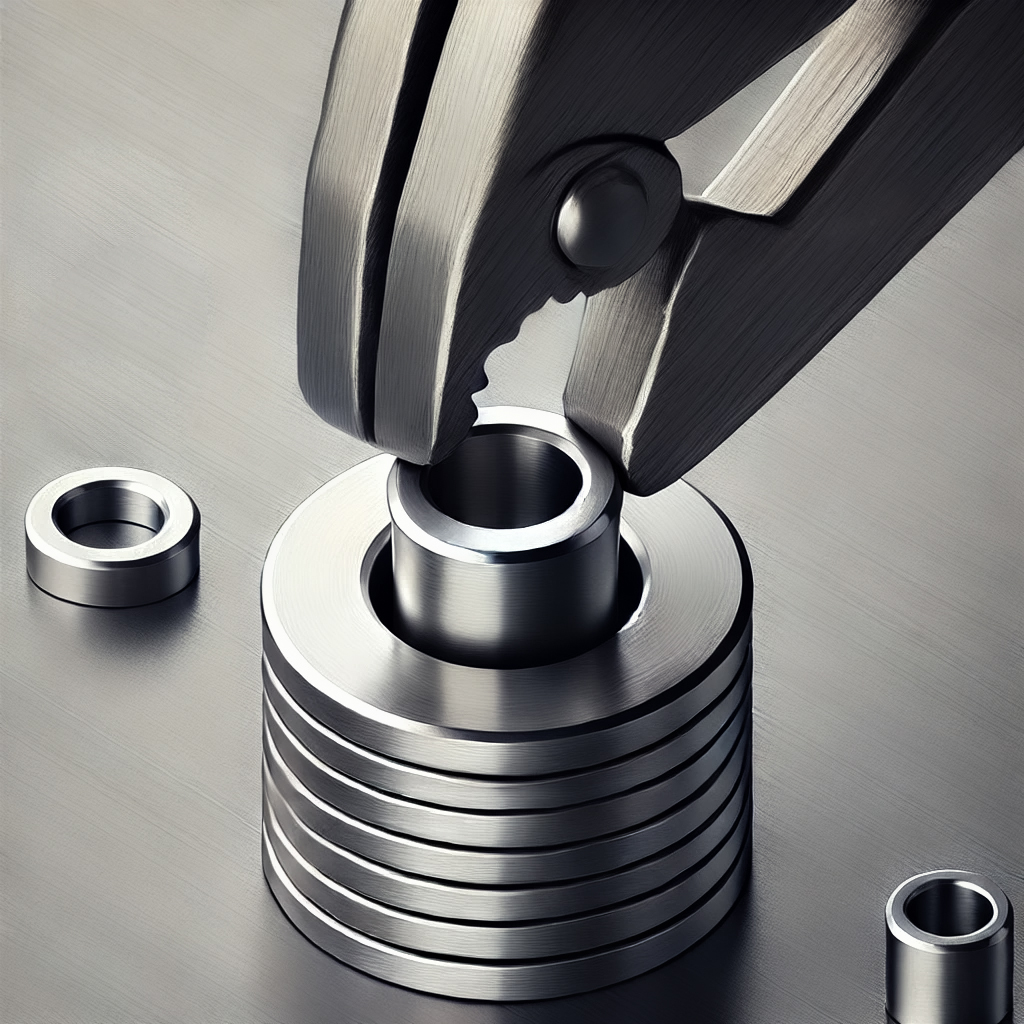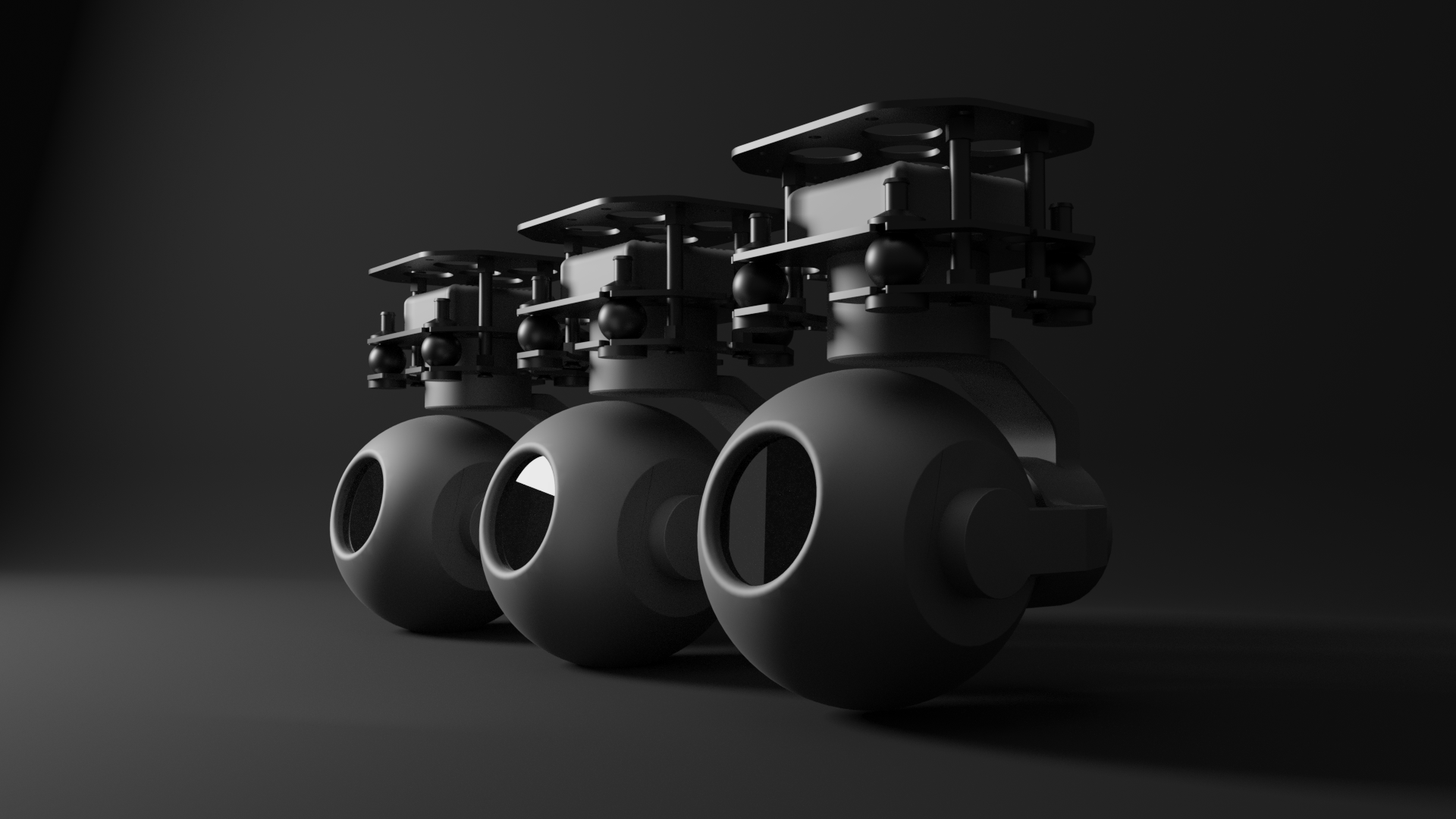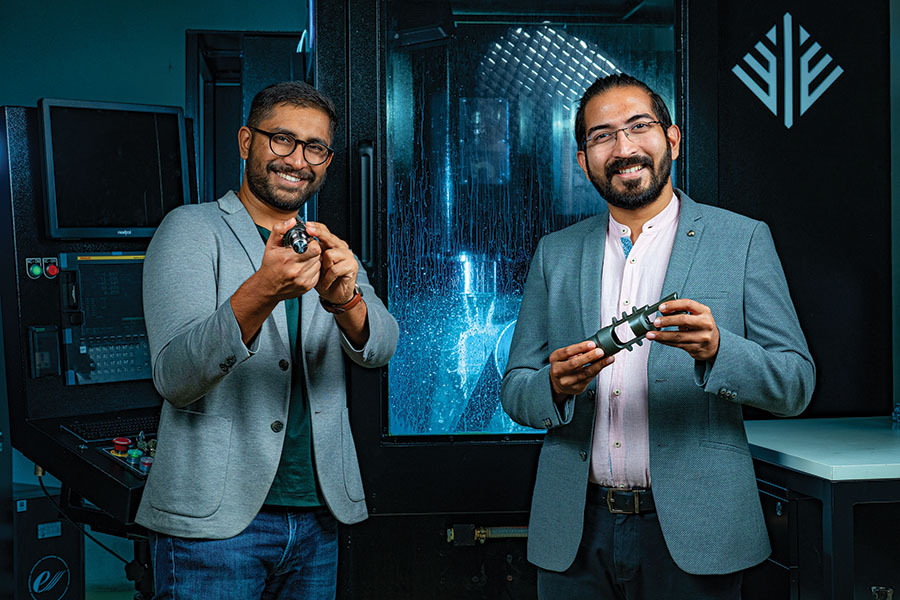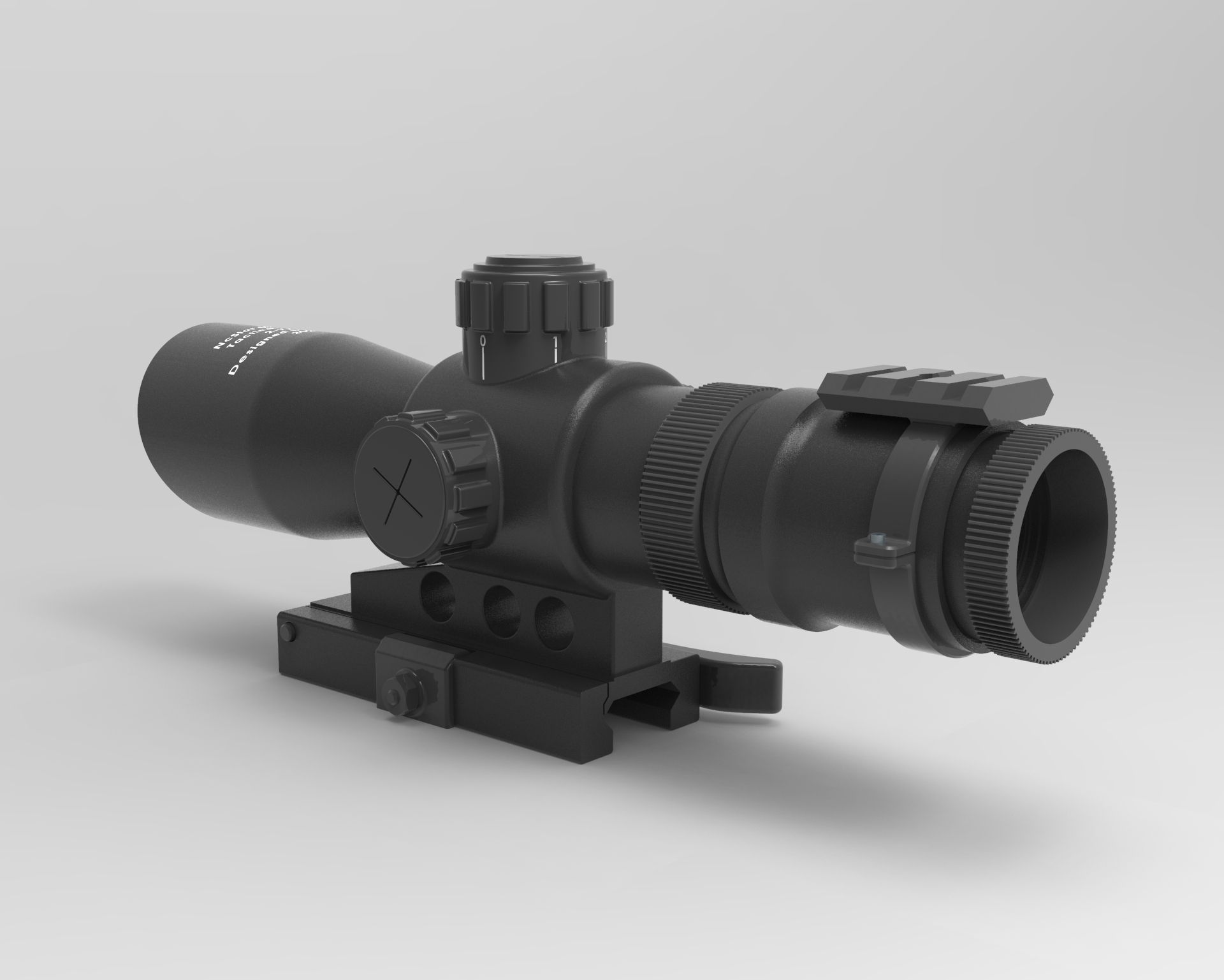Choosing the Right Aluminum Alloy for Your CNC Machining Project
Aluminum, one of the most popular choices for CNC machining and for good reason. This light and mighty metal is not only strong, but it also boasts exceptional corrosion resistance. But before you go ahead and order just any aluminum alloy for your CNC machining project, hold on! Not all aluminum alloys are created equal. Did you know that rigid 7075 aluminum can easily shatter during machining? Or that pure aluminum, specifically 1100, is actually the toughest to manufacture?

So, let’s dive into the world of aluminum alloys. The Aluminum Association Inc. has approved over 400 aluminum and wrought aluminum alloys. These alloys are categorized into series (1000-8000) based on defining properties like thermal response, mechanical treatment, and primary alloy element. The lower the series, the purer the aluminum. But hold your horses, purest isn’t always the best for CNC machining. Take 1100 aluminum, for example. It’s one of the purest forms, but it’s also incredibly soft and absorbent, making it a bit of a hassle to machine.
When it comes to choosing the right aluminum alloy for your CNC machining project, you’ve got a few factors to consider. The properties of your desired part, cost, and lead time, for instance. And now, let’s meet the stars of the show, the most common aluminum alloys for CNC machining!
Alloy 1100: Corrosion-resistant and highly conductive, this is the purest form of aluminum. But beware, machining it can be a bit tricky compared to other types.
Alloy 2011: This alloy is highly machinable, making it a preferred choice for applications where intricate and precise machining is essential. It is often used in the production of complex parts, such as fittings and connectors.
Alloy 2024: Known as architectural aluminum, this alloy offers high strength and excellent corrosion resistance. It’s more machinable than alloy 1100 but comes at a higher cost.
Alloy 5052: If you need something thick, this alloy has got you covered with its availability in thicknesses up to. It’s malleable, machinable, and ideal for sheet metal fabrications.
Alloy 5083: Known for its superb corrosion resistance, 5083 is frequently chosen for marine and naval applications. It maintains its structural integrity in saltwater environments, making it suitable for boat components and offshore structures.
Alloy 6061: The most common aluminum alloy, and for a good reason! It’s cost- effective, easily machinable, and perfect for rapid prototyping and production runs.
Alloy 6063: Primarily valued for its exceptional extrusion properties, 6063 is commonly used in CNC machining to create complex, lightweight shapes. It is a preferred choice for architectural and construction applications, such as window frames and structural components.
Alloy 7075: With its high-strength properties, this alloy is often used in aircraft components. But be cautious while machining as it can be a little finicky.
Now that you’re well-informed about these aluminum alloys, you can select the ideal one for your CNC machining project. Best of luck with your machining endeavors, alloy enthusiasts!
Understanding Aluminum Alloys
Aluminum is a versatile and commonly used metal known for its lightweight nature, corrosion resistance, and exceptional machinability. However, it’s important to note that not all aluminum alloys are created equal. Each alloy possesses its own distinct characteristics and properties that can significantly impact the outcome of your CNC machining project.
You see, aluminum alloys are classified and characterized by series, ranging from 1000 to 8000, each series representing distinct properties such as thermal response and mechanical treatment. The lower the series, the purer the aluminum. But wait, don’t jump to conclusions and assume that pure is always better. In the world of CNC machining, that is not always the case.
Take 1100 aluminum, for example. It’s one of the purest forms of aluminum out there. But beware, this pure beauty can be a nightmare to machine due to its soft and absorbent nature. On the other hand, there’s 2024 aluminum, also known as architectural aluminum. It offers high strength and excellent corrosion resistance, but at a higher cost compared to the standard 6061 aluminum.
So, what’s the key takeaway here? When selecting an aluminum alloy for your project, it’s crucial to base your decision on the specific properties your project requires. Factors such as cost, availability, machinability, and strength should all be taken into account. Think of it as finding the ideal partner for your project; compatibility is essential.
Now that you have a fundamental understanding of aluminum alloys, let’s delve into the various factors you should consider when choosing the appropriate aluminum alloy for your CNC machining project. Rest assured, it’s more than just selecting the most visually appealing one from the options available.
Factors to Consider in Choosing the Right Aluminum Alloy
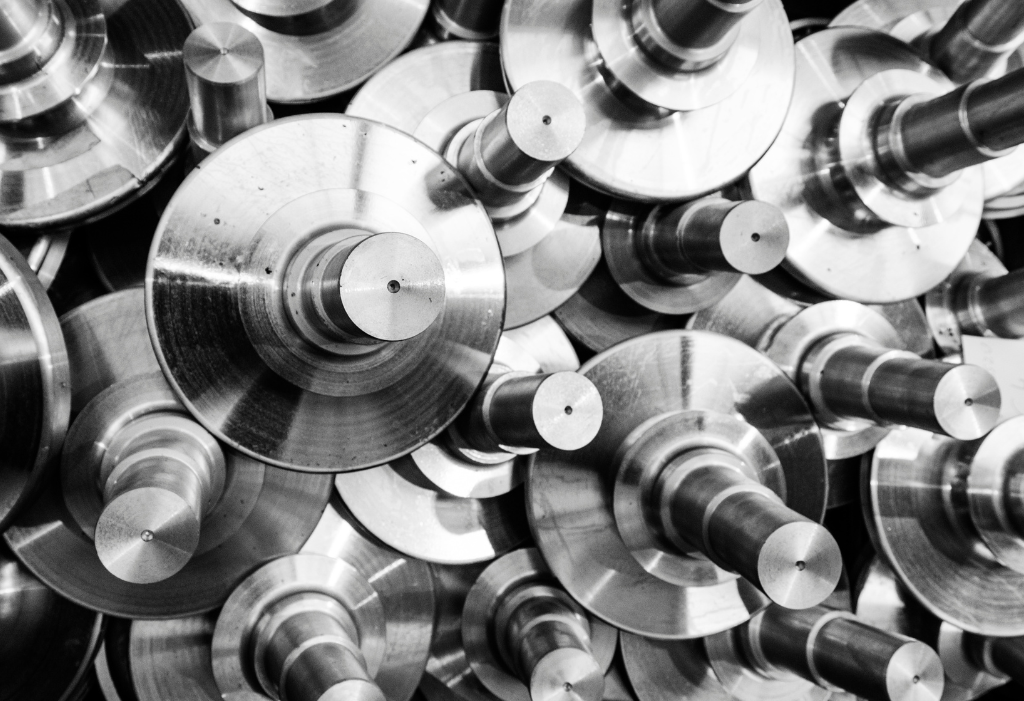
Another factor to consider is the machinability of the alloy. Some aluminum alloys are easier to machine than others, so if you’re working with a complex design, you’ll want to choose an alloy that is easily machinable. Additionally, cost and availability are important considerations. Some aluminum alloys are more expensive or harder to come by, so you’ll need to factor this into your decision-making process.
Strength Requirements: Assess the required strength and structural characteristics of your components. Different alloys offer varying levels of strength and stiffness, allowing you to tailor your choice to meet the project’s needs.
Corrosion Resistance: Evaluate the environmental conditions your components will be exposed to. If corrosion resistance is paramount, opt for alloys renowned for their resilience in challenging environments.
Budget Constraints: Factor in your project’s budget constraints. While some high-performance alloys may offer superior properties, they may also come with a higher cost. Weigh the benefits against the budget to make an informed decision.
Each aluminum alloy presents a unique set of strengths and weaknesses, making it crucial to thoroughly understand the intricacies of these materials. By delving deep into the characteristics of different alloys, you can make a well-informed decision and choose the perfect aluminum alloy that aligns with your CNC machining project’s precise requirements. Remember, knowledge and careful consideration are the keys to successful outcomes in the realm of CNC machining. Choosing the perfect aluminum alloy for your CNC machining project is crucial for achieving optimal results. By carefully evaluating the specific properties, machinability, cost, availability, and industry requirements, you can make an informed decision that will lead to a successful outcome. So, don’t rush the selection process; take your time and choose wisely. After all, the success of your project depends on it!
The Most Common Aluminum Alloys for CNC Machining
When it comes to CNC machining, aluminum alloys vary significantly in their suitability for different applications. Let’s delve into some of the commonly used aluminum alloys in CNC machining and their key characteristics.
First on our list is 1100 aluminum, prized for its corrosion resistance and high conductivity, making it ideal for electrical applications. However, it’s worth noting that 1100 is the purest and consequently the most expensive form of aluminum, which can pose challenges during machining. Working with 1100 aluminum demands precision and strategic planning, sometimes even omitting the use of cutting fluids.
Moving on to 2024 aluminum, also referred to as architectural aluminum. It’s notably more machinable than 1100 and boasts high strength and exceptional corrosion resistance. However, its benefits come at a higher price compared to the standard 6061 aluminum.
If your project requires a thicker alloy, 5052 aluminum might be the preferable choice. It’s commonly employed for sheet metal fabrications where flatness is paramount. This alloy offers moderate corrosion resistance, and it is both malleable and machineable. Keep in mind that it may not be the most suitable option for fast-turn prototype models.
For applications involving fast-turn rapid prototyping or production runs, 6061 aluminum is often the recommended choice. This alloy is the most prevalent due to its reasonable cost and ease of machinability. Moreover, it serves as an excellent aircraft-grade aluminum for high-strength applications.
Last but certainly not least, we have 7075 aluminum, a high-strength alloy also used in aircraft components. However, caution is necessary when working with this alloy, as it can easily shatter during machining due to its rigidity.
Therefore, when selecting an aluminum alloy for your CNC machining project, it’s essential to consider factors such as strength, machinability, cost, and availability. Each alloy possesses its unique properties, and making the right choice ensures your parts will meet your specifications.
Now that we’ve discussed the most prevalent aluminum alloys for CNC machining, let’s move on to exploring the advantages and disadvantages of these various alloys. Stay tuned!
Benefits and Drawbacks of Different Aluminum Alloys
When it comes to choosing the perfect aluminum alloy for your CNC machining project, it’s essential to consider the benefits and drawbacks of each option. After all, not all aluminum alloys are created equal!
Exploring the Advantages:
Outstanding Machinability: Aluminum, as a material, possesses exceptional machinability characteristics. It is inherently responsive to CNC machines, allowing for intricate part shaping and forming with precision. This remarkable machinability expedites the manufacturing process without compromising on accuracy, which is especially vital for complex components.
Impressive Strength-to-Weight Ratio: One of aluminum’s most prominent strengths is its remarkable strength-to-weight ratio. In practical terms, this means that aluminum can deliver robust structural performance without adding unnecessary weight. This attribute is invaluable when projects demand lightweight materials to reduce energy consumption, enhance mobility, or meet weight constraints without compromising on strength and durability.
Superior Corrosion Resistance: Aluminum is well-regarded for its natural corrosion resistance. This quality is primarily due to the formation of a thin, protective layer of aluminum oxide on its surface. This oxide layer acts as a barrier, shielding the underlying material from environmental elements, moisture, and chemicals. Consequently, aluminum components remain rust-free, even in harsh and corrosive environments, which is crucial for ensuring the long-term reliability of various applications.
Delving into the Drawbacks:
Machinability Variations: It is essential to recognize that not all aluminum alloys offer uniform machinability. While aluminum, in general, is known for its ease of machining, some specific alloys, such as the pure form of aluminum (1100 alloy), can pose more significant machining challenges. Working with these alloys may require additional care, expertise, and potentially specialized tools to achieve the desired precision.
Cost and Availability Considerations: When selecting an aluminum alloy, it’s vital to weigh the associated costs and availability. Some aluminum alloys, despite offering superior properties, may come with a higher price tag. This can impact the overall cost-effectiveness of your project. Additionally, the availability of specific alloys may vary depending on your location and the current market conditions, which can influence your decision-making process.
Choosing the Right Aluminum Alloy for Different Applications
In the world of CNC machining, every project is unique and requires careful consideration when choosing the right aluminum alloy. Let’s take a look at a few case studies to understand how different applications demand specific aluminum alloys.
Automotive Parts
Imagine you’re designing engine components for a high-performance car. In this case, you need an aluminum alloy that offers both strength and lightweight properties. It’s time to call upon the mighty 6061 aluminum alloy. With its excellent machinability and high strength, it’s the perfect choice for creating complex and durable automotive parts. Plus, its availability and cost-effectiveness make it a go- to option for rapid prototyping.
Aerospace Components
Now, let’s shift our focus to the aerospace industry. Here, precision and reliability are crucial. When designing components for aircraft, you need an aluminum alloy that can withstand extreme temperatures and provide optimal strength. Enter 7075 aluminum, known for its outstanding high-strength properties. This alloy is capable of withstanding the demanding conditions experienced in the aerospace industry, making it an ideal choice for structural components and critical aircraft parts.
Electronics
What about electronic applications? Here, we need an aluminum alloy that is not only corrosion-resistant but also highly conductive. Look no further than the trusty 1100 aluminum alloy. Its corrosion resistance and excellent electrical conductivity make it a top pick for electronic housings, connectors, and heat sinks. Although it may be a bit challenging to machine, skilled machinists can handle it with ease.
Marine Parts
Last but not least, let’s dive into the world of marine applications. When it comes to designing parts for boats and ships, we need an aluminum alloy that can withstand the corrosive effects of saltwater. This is where 5052 aluminum comes into play. With its mild corrosion resistance and malleability, it is a popular choice for marine components such as hulls, frames, and deck fittings.
Conclusion
Choosing the ideal aluminium alloy for your CNC machining project is a critical decision. By taking into account factors such as part properties, cost, and availability, you can make a well-informed choice that aligns with your specific requirements. Whether you require high strength, corrosion resistance, or excellent machinability, rest assured there’s an aluminum alloy suited perfectly to your project’s needs. Therefore, invest time in researching and exploring your available options. Your CNC machined prototypes will undoubtedly benefit from this effort.
When you’re prepared to transform your concepts into reality, consider Ethereal Machines as your CNC machining partner. Our proficiency and cutting-edge technology guarantee precise and efficient project execution. Feel free to reach out to us today to transform your CNC machining aspirations into tangible results!
On-demand CNC Machining Services by Ethereal Machines offers the perfect solution for your CNC machining needs. With secure and confidential processes, you can get an instant quote and access expert advice from their technical team. Whether you need custom CNC machined parts or have a specific project in mind, Ethereal Machines is committed to helping you every step of the way. Try MAAS now and achieve your goals with ease.
Views: 547

